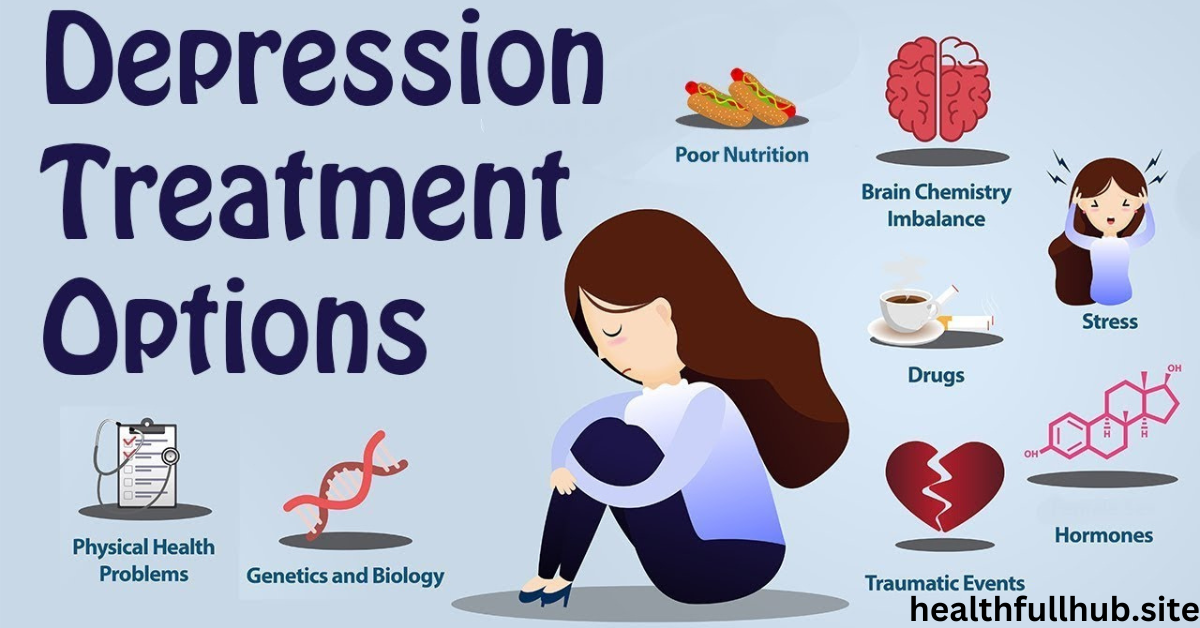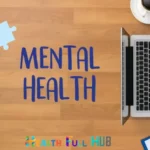Depression Treatment manifest indifferent habits, from persistent depression and discouragement to tangible symptoms in the way that fatigue and trouble collect. This multifaceted sickness impacts not only the individual but still their loved one and institution not tight. Thankfully, depression is treatable, and skilled are differing evidence-located treatments possible that can considerably better the quality of existence for those troubled.
In this item, we will explore the differing situation options for cavity, varying from healing interventions to healing approaches, behavior changes, and complete care. Understanding that no single situation everything for all is essential, as depression is frequently a intensely private experience needing decided care.

Understanding Depression Treatment
Depression Treatment, also known as major depressive disorder (MDD), is not merely feeling sad or down.
- Persistent unhappiness or a discouraged condition
- Significant changes in craving or pressure
- Difficulty asleep or dormant excessive
- Fatigue or misfortune of strength
- Feelings of uselessness or regret
- Difficulty collect or making decisions
- Suicidal hopes or attempts
If left untreated, depression can worsen over time and lead to serious consequences, such as social isolation, substance abuse, and even suicide. Therefore, seeking treatment early is crucial for recovery.
Medical Treatments for Depression Treatment
1. Antidepressant Medications
These drugs are devised to correct synthesized imbalances in the intellect, specifically those including neurotransmitters like serotonin, norepinephrine, and dopamine.
There are definite classes of antidepressants:
- Selective Serotonin Reuptake Inhibitors (SSRIs): These are often the first line of treatment for depression. SSRIs, such as fluoxetine (Prozac) and sertraline (Zoloft), work by increasing the level of serotonin in the brain.
- Serotonin and Norepinephrine Reuptake Inhibitors (SNRIs): Medications like venlafaxine (Effexor) and duloxetine (Cymbalta) target both serotonin and norepinephrine to help improve mood.
- Tricyclic Antidepressants (TCAs): While older and less commonly used due to side effects, TCAs like amitriptyline and nortriptyline can be effective for some individuals.
- Monoamine Oxidase Inhibitors (MAOIs): These are typically reserved for cases where other treatments have failed, as they can interact with certain foods and other medications..
2. Augmentation Strategies in Depression Treatment
Sometimes, antidepressants unique may not supply sufficient relaxation. In that cases, doctors may use improving strategies by increasing other cures, such as:
- Mood stabilizers like lithium or antipsychotics (e.g., aripiprazole) to enhance the effect of antidepressants.
- Thyroid medications may also be used in certain cases, even if thyroid function is normal.
3. Electroconvulsive Therapy (ECT)
For things along severe cavity that does not feel for cure or therapy, ECT (ECT) maybe a history-saving situation. ECT concerns executing controlled energetic currents to the intellect while the patient is under sleep. This induces a brief seizure that can help relocate sure intelligence functions, leading to progresses in emotion.
Though it is frequently misunderstood and branded, up-to-date ECT is reliable and effective, among littlest aftereffects. It is particularly advantageous for things along situation-resistant concavity or those at next risk of self-destruction.
Psychotherapeutic Treatments for Depression
1. Cognitive Behavioral Therapy (CBT)
Cognitive Behavioral Therapy (CBT) is individual of ultimate widely researched and direct forms of psychotherapy for concavity.. By knowledge healthier habits to remember and respond to positions, things can constantly improve their emotion and managing systems.
2. Interpersonal Therapy (IPT)
Interpersonal Therapy (IPT) focuses on repairing social connections and communication patterns. Depression frequently heightens impressions of confinement or conflict in connections, and IPT helps things address these issues by improving their ideas abilities, clearing up conflicts, and house more active connections.
3. Psychodynamic Therapy in Depression Treatment
Psychodynamic cure survey how paralyzed processes and past knowledge, particularly from childhood, cause current moving troubles. By win insight into these buried impressions and uncertain conflicts, individuals can address the root causes of their concavity. While this approach is less organized than CBT, it maybe effective for things the one be going to investigate their emotional past.
4. Dialectical Behavior Therapy (DBT)
Originally grown for borderline emotional disorder, Dialectical Behavior Therapy (DBT) has further shown influence in treating basin, specifically for those who fight with intense excitements or self-hurtful behaviors. DBT associates cognitive-physiological methods with care practices, teaching things by means of what to tolerate distress, manage emotions, and unfold healthful relationships.
While cure and analysis are essential, behavior changes can also play a critical part in doctoring basin. Often, unimportant, positive changes in regularly practices can have a meaningful affect mood and overall happiness.
Regular Exercise
Exercise is individual of ultimate effective natural situations for concavity. Physical activity boosts the release of endorphins, that are projectiles for weaponry in the brain that help impressions of satisfaction and relief. Exercise likewise reduces stress and anxiety, upgrades sleep, and augments pride.
Even a simple daily walk can make a difference. The key is to start small and gradually build up to more challenging activities.
2. Balanced Diet
Diet can influence insane health while while physical strength. Eating a equitable diet rich in products, vegetables, whole grains, lean proteins, and healthful adipose tissue can help improve emotion and strength levels. Avoiding treated foods, overdone carbohydrate, and caffeine can lower character swings and help maintain emotions.
3. Sleep Hygiene
Depression usually disrupts sleep, dominant to either insomnia or overdone dormant. Establishing a formal sleep routine, constructing a relaxing sleep time surroundings, and preventing stimulants like caffeine in the evening can help enhance sleep status and manage character.
4. Stress Management
Chronic stress can cause or depress depression. Learning stress government methods such as care contemplation, yoga, deep breathing exercises, or enlightened influence entertainment can help individuals defeat stress and increase emotional elasticity.
Holistic and Alternative Treatments
For few individuals, complete or completing treatments maybe an source of their recovery journey. While these approaches endure not succeed medical situations, they maybe used alongside current cures to promote overall happiness.
1. Acupuncture
Acupuncture, an old Chinese antibiotic practice, includes putting thin annoys into particular points on the bulk to balance strength flow. Some studies desire that acupuncture may help relieve inactivity by exciting the brain’s result of neurotransmitters like serotonin.
2. Herbal Supplements
Certain herbal supplements, such as St. John’s Wort and Saffron, have shown promise in treating mild to moderate depression. However, these should be used with caution, as they can interact with other medications, particularly antidepressants. Always consult a healthcare provider before starting any supplements.
3. Light Therapy
For individuals with seasonal affective disorder (SAD), a type of depression that occurs during the winter months when sunlight is scarce, light therapy can be beneficial. This treatment involves sitting in front of a lightbox that mimics natural sunlight for a prescribed amount of time each day.
The Importance of Support Systems
Social support is a critical component of depression recovery. Isolation can worsen depression, so it’s important for individuals to stay connected with loved ones, friends, or support groups. Having a network of understanding and supportive people can provide encouragement, reduce feelings of loneliness, and help individuals stay motivated in their treatment.
1. Support Groups
Support groups, either in person or online, can provide a safe space for individuals to share their experiences with others who understand what they are going through. This sense of community can be incredibly healing and reduce the stigma often associated with depression.
2. Family Involvement
Involving kin representatives in treatment can help discipline them about depression and educate bureaucracy how to supply psychological support. Family therapy can more address some related dynamics that can be providing to the individual’s depression
Conclusion
Depression can feel overwhelming, but with the right treatment, recovery is not only possible but probable. Medical interventions, psychotherapeutic approaches, lifestyle changes, and support from loved ones all play a vital role in managing and overcoming depression.
If you or someone you know is struggling with depression, reaching out for help is the first step toward



